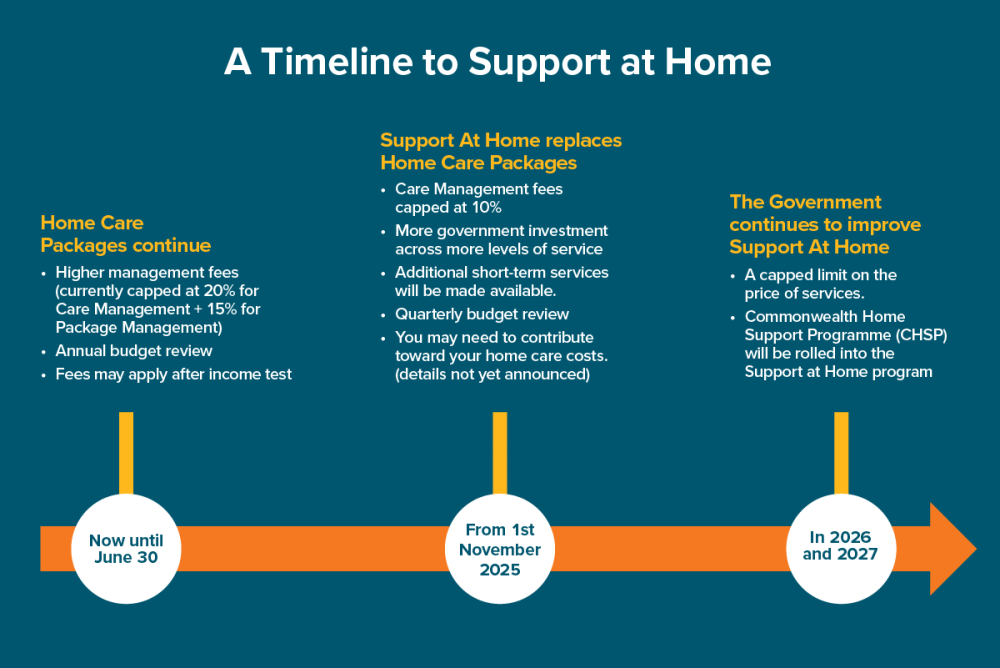How home care providers support independence for people with disabilities
How home care providers support independence for people with disabilities
Blog Article
All Concerning Home Treatment Services for People With Disabilities: NDIS Registered Support
Home treatment services under the NDIS play a pivotal role in supporting people with handicaps. These services are developed to boost daily living with customized assistance, ranging from personal care to wheelchair assistance. Understanding just how to navigate these options can be complicated. This summary checks out the numerous aspects of NDIS home treatment, from available solutions to the option of service providers, highlighting crucial considerations for those seeking assistance. The journey toward encouraged treatment starts below.
Comprehending the NDIS and Its Function
The National Special Needs Insurance Policy Scheme (NDIS) functions as a transformative framework made to supply assistance and solutions for individuals with specials needs. Established to enhance the lifestyle and assurance equitable accessibility to vital resources, the NDIS equips participants by offering individualized strategies customized to their unique demands. It aims to promote freedom, making it possible for people to pursue their individual objectives and aspirations.Through a structured approach, the NDIS assigns funding for numerous assistances, including education and learning, employment aid, and neighborhood participation. This comprehensive plan not just focuses on prompt treatment however additionally highlights lasting developmental results. By promoting choice and control, the NDIS motivates participants to choose their favored company, guaranteeing that care aligns with their preferences and values. Ultimately, the NDIS stands for a significant dedication to boosting the lives of individuals with disabilities, promoting inclusivity, and developing an extra encouraging society.
Sorts Of Home Care Provider Available
Different types of home treatment solutions accommodate people with impairments, mostly concentrating on individual care support and break care alternatives. Individual care aid offers necessary support with daily activities, while reprieve treatment offers short-lived relief for primary caretakers. Understanding these services is important for making sure the well-being of both individuals with impairments and their families.
Personal Care Assistance
While maneuvering every day life can provide difficulties for individuals with disabilities, individual care help offers vital support customized to their distinct needs. This sort of home treatment service encompasses a series of activities developed to advertise self-reliance and boost lifestyle. Personal treatment assistants help with day-to-day jobs such as bathing, clothing, brushing, and toileting, ensuring people preserve individual health and convenience. They may likewise help with meal preparation, medicine management, and movement support. By offering personalized treatment, these specialists equip individuals to engage more fully in their social activities and day-to-day routines. In general, individual care aid plays a substantial duty in fostering dignity and freedom for those with impairments, permitting them to flourish in their home atmosphere.

Respite Treatment Options
Break care works as a vital resource for families and caregivers of individuals with specials needs, supplying short-term relief from the needs of day-to-day caregiving. This type of service can take numerous types, including in-home break care, where skilled experts visit the home to help with care tasks. Alternatively, households may select facility-based respite care, where individuals get treatment in a specific setting, enabling caregivers to take a break. In addition, some companies use emergency situation respite services for unpredicted circumstances. These alternatives not only assist alleviate caretaker tension however likewise advertise the wellness of people with handicaps by using them new experiences and social communication. In general, reprieve treatment plays a vital role in supporting both caretakers and those they look after.

How to Access NDIS Home Treatment Services
Accessing NDIS home care services includes comprehending the eligibility standards established forth by the National Handicap Insurance Policy System. People must browse a structured application procedure to secure the needed support tailored to their requirements. This area will certainly make clear both the eligibility needs and the steps included in making an application for solutions.
Qualification Requirements Clarified
To certify for NDIS home treatment services, people must meet particular eligibility requirements that evaluate their circumstances and demands. Applicants must be matured between 7 and 65 years and have a substantial and irreversible impairment that affects their ability to perform day-to-day activities. In addition, they must be an Australian citizen, a permanent citizen, or hold a Protected Unique Group Visa. The NDIS calls for evidence of the special needs, usually via medical evaluations or reports. In addition, individuals should demonstrate that they need support to participate in social and economic life. These standards ensure that solutions are directed in the direction of those that really need assistance, advertising independence and improved lifestyle for people with disabilities.
Application Refine Actions
Can I Pick My Very Own Assistance Workers Via NDIS?
The specific inquired whether they might choose their own support employees under the NDIS structure. Typically, individuals have the flexibility to pick assistance employees, promoting individualized treatment that straightens with their certain demands and preferences.
What Takes place if My Requirements Modification After Receiving Support?
They need to interact these changes to their service company if an individual's demands modification after obtaining support. Modifications can be made to the care strategy, making sure that the support stays appropriate and reliable for their situations.

Exist Restricts on The Amount Of Hours of Treatment I Can Obtain?
The private made inquiries concerning prospective limits on the number of treatment hours got. Typically, such limits may exist based upon certain policies or funding plans, highlighting the relevance of assessing standards and contracts on a regular basis.
Can I Utilize NDIS Funding for Home Adjustments?
The question of making use of funding for home adjustments emerges frequently. Typically, people might utilize NDIS financing for required alterations to their homes, making certain ease of access and safety and security, set upon meeting particular qualification criteria and guidelines.
Exactly how Do I Deal with Grievances About My Home Care Providers?
To attend to issues concerning home care services, people must first record their worries. They can connect directly with their solution copyright, seeking resolution, or intensify the problem to pertinent oversight bodies if needed. Home treatment services under the NDIS play a pivotal duty in supporting individuals with impairments. Different types of home treatment services provide to people with specials needs, mainly focusing on individual care aid and respite treatment options. support at home provider. Personal treatment aid offers vital assistance with day-to-day tasks, while reprieve care offers momentary alleviation for key caregivers. Households may decide for facility-based respite treatment, where people get treatment in a specific setting, enabling caregivers to take a break. How can families properly manage the financial elements of home care solutions for people with specials needs?
Report this page